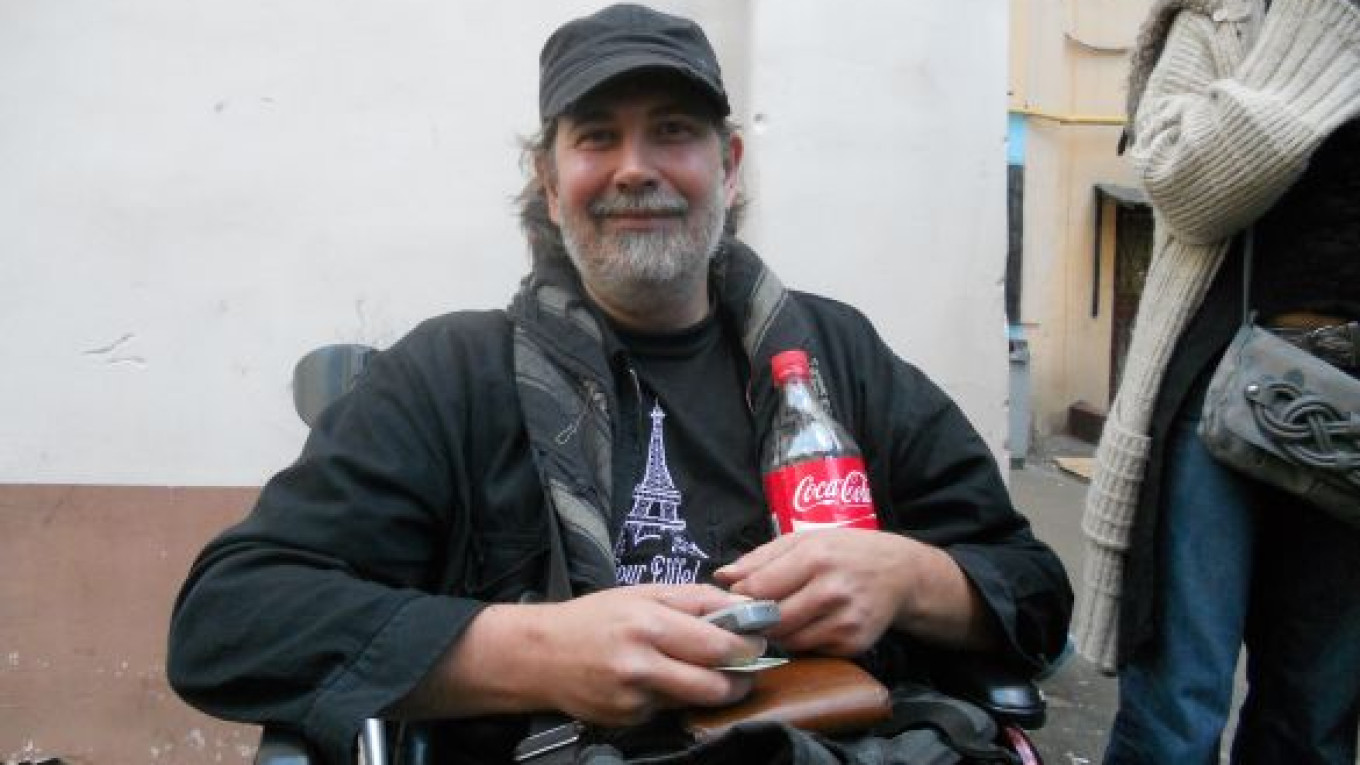I happened to catch an interview with Russian political opposition leader Boris Nemtsov on the Sovershenno Sekretno (Top Secret) TV channel on Friday. He was talking about corruption in Sochi surrounding preparations for the 2014 Winter Olympics and why the local residents are not protesting.
According to Nemtsov, people in Sochi largely oppose the Olympic games coming to their city, but are afraid to speak out for fear of losing their jobs or worse.
"The provinces are not like Moscow, where we are used to being relatively free," Nemtsov explained.
Sound far-fetched? Cut to the city of Belgorod, near Russia's border with Ukraine.
On Tuesday, February 15, news began popping up on my Facebook page with links to numerous other internet sites, including Lenta.ru, Live Journal and Gzt.ru. The reason? Officials at a theater school in Belgorod had banned a performance of Yevgeny Grishkovets' play "The Planet," a dreamy piece about a man standing at his window thinking about the women in his life.
Valentina Dubyanskaya, the dean of theater at the Belgorod Institute of Culture and Arts, said she did it to "save her job," as well as that of Oksana Pogrebnyak, the teacher who had been overseeing the productions of contemporary plays.
"I, indeed, have supported the staging of plays by contemporary authors," Dubyanskaya was quoted as saying in Kasparov.ru.? "But it has gotten out of hand. In order to save my job and Oksana's job, I made the decision to stop the showing of these productions."
According to one source, no banning of plays ever took place.
"We did not forbid plays," Margarita Litvinova, a pro-rector at the Belgorod Institute of Culture and Arts told Vikno.eu on Feb. 16.
Judging by the information available, however, things were not quite so innocent.
A detailed report in Gzt.ru showed that the chain of events kicked off on Feb. 4, when a play called "Moon and Transformer" by Urals-based playwright Andrei Krupin opened on the New Stage of the institute's student theater.
The production, which was the directing debut of student Maxim Yurin, attracted the attention of the authorities almost immediately and was banned from further performances on Feb. 7.
Pogrebnyak was quoted in Gzt.ru as saying: "At a meeting of the artistic council it was declared that we had violated the law of the Belgorod region, specifically, the 'law of spiritual security.' The productions and plays were declared 'spiritually dangerous,' and all participants of the production were accused of propagandizing pedophilia."
Krupin himself responded by saying that his play is "a text about loneliness, about love. In part it is autobiographical and, naturally, there is no propaganda of pedophilia in it."
Commentators have struggled to determine whether Belgorod actually has a law that would support the banning of plays.
During a talk show on Echo Moskvy radio on Wednesday, Yelena Drapeko, first deputy chair of the Duma Culture Committee, indicated that the actions of the Belgorod officials represented a violation of the law, because the constitution of the Russian Federation forbids censorship. At the same time, however, she admitted that a so-called Putin doctrine does exist, the "Doctrine of Informational Security of Russia," signed in Sept. 2000, which deals with "spiritual life."
There was official talk in December of outlawing obscenities in Russia, although that move never reached a vote on the federal level. According to Web Ground, a web monitoring source, this move was inspired by an anti-obscenity law put into effect in Belgorod.
On Echo Moskvy, Drapeko described Belgorod as a "pilot region," a place where government ideologues try out ideas to see whether or not they pass muster.
It is uncertain whether the Belgorod law mentioned by Web Ground in December was the same one used to ban the plays by Krupin, Grishkovets and others.
According to a Live Journal post by Moscow director and playwright Mikhail Ugarov, a total of seven plays were banned at the Belgorod student theater. Six of them were written by contemporary Russian playwrights. The seventh was by 1997 Nobel Prize-winning Italian author Dario Fo.
"Peepers" by Vadim Levanov.
"Oxygen" by Ivan Vyrypayev.
"Natasha's Dream" by Yaroslava Pulinovich.
"Kids' World" by Vladimir Zuev.
"Moon and Transformer" by Andrei Krupin.
"The Planet" by Yevgeny Grishkovets.
"The Open Couple" by Dario Fo.
For the record, on the same day as the premiere of Krupin's play, Belgorod authorities also banned public observance of St. Valentine's Day.
According to Kasparov.ru, "Belgorod students and pupils were banned from observing St. Valentine's Day, conducting thematic parties and exchanging Valentine cards among themselves."
I mention this because some pundits have seen a connection between the St. Valentine's Day ban and the banning of the plays at the student theater.
I didn't make any of this up. Honest.


